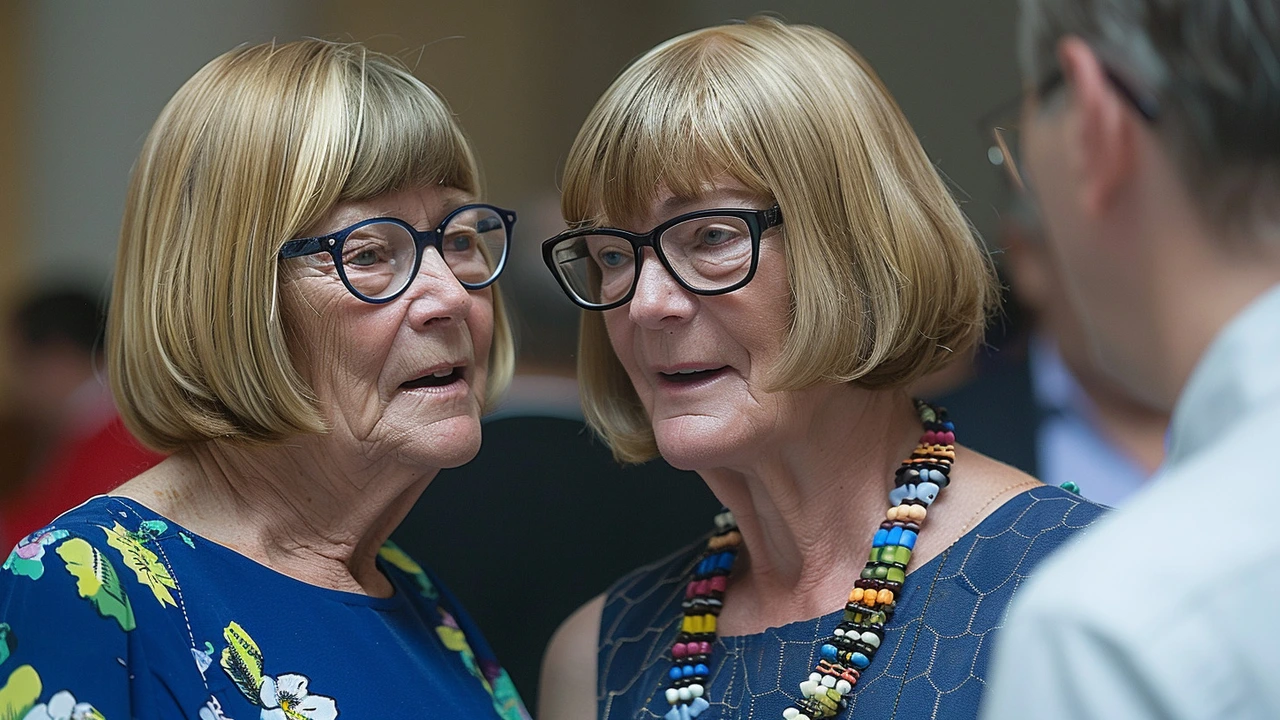The Rising Influence of Ethnic Identity Politics in South Africa's 2024 Elections
The landscape of South African politics has seen a significant shift as the nation approaches its 2024 elections. Democratic Alliance (DA) federal chairperson, Helen Zille, has voiced her opinion that these elections have been markedly influenced by what she and others term the 'ethnic identity vote.' As initial results start to appear, Zille has expressed a distinct confidence that her party is on track to win the Western Cape by a compelling majority.
In an exclusive interview, Zille elaborated on the dynamics of the evolving political scene. She attributed the notable rise of new political parties such as the uMkhonto weSizwe Party (MK) and the Patriotic Alliance (PA) to ethnic identity politics, fundamentals that she claims have been overlooked in the wider narrative around the elections. According to Zille, the MK Party has ingeniously woven its campaign around Zulu-speaking voters in KwaZulu-Natal, tapping into cultural and linguistic ties that run deep. The PA, on the other hand, has tailored its outreach to engage coloured South Africans, creating a resonant connection through shared community values and heritage.
Understanding the 'Ethnic Identity Vote'
Zille's analysis brings into focus a critical but often underestimated aspect of South African politics: the power of ethnic identity in influencing voter behavior. In a country as diverse as South Africa, where multiple ethnicities and languages coexist, political affiliations often reflect deeper communal and cultural bonds. This trend has only grown more pronounced as newer parties like MK and PA have strategically capitalized on these identities, converting cultural affiliations into political support.
The strategy appears to be yielding results. Early election figures reveal that the African National Congress (ANC) is in the lead with 1,523,467 votes. The DA is trailing as the second most popular choice, with 897,332 votes secured so far. Following them, the Economic Freedom Fighters (EFF) have gathered 320,888 votes, the MK Party has clinched 309,037 votes, and the Patriotic Alliance (PA) has 135,134 votes to its name. These numbers signify not just a political contest but also the reflection of South Africa's intricate social fabric.
DA's Stronghold in the Western Cape
For the Democratic Alliance, the Western Cape remains a bastion of support. Zille's confidence is bolstered by historical trends and the party's consistent performance in the region over the years. The Western Cape has been one of the few provinces in South Africa where the DA has maintained significant influence, and early indicators suggest this trend will continue in 2024.
Zille attributes this loyalty to several factors, including effective governance and policies that align closely with the needs of the province's diverse population. Nevertheless, she remains cautious, acknowledging that the political landscape is continually evolving and that the DA must work diligently to retain and expand its voter base.
The Emergence of uMkhonto weSizwe Party and Patriotic Alliance
The emergence of uMkhonto weSizwe Party (MK) and the Patriotic Alliance (PA) adds a new dimension to South Africa's political narrative. These parties have not just emerged but have gained significant traction within a short period, which itself is telling of the changing voter expectations and sentiments.
The MK Party's focus on Zulu-speaking voters could be seen as an attempt to fill a perceived gap in representation within the larger political ecosystem. KwaZulu-Natal, being predominantly Zulu, provides a fertile ground for such a strategy. Correspondingly, the PA's targeted outreach to coloured South Africans aims to resonate with a community that holds a unique position within South African society.
Zille's observations highlight an interesting paradigmatic shift in South African politics, one that aligns with global electoral trends where identity-based politics are gaining prominence. The strategic moves by MK and PA underscore a growing political sophistication, wherein parties are increasingly tailoring their campaigns to speak directly to the identity and experiences of their constituencies.
Implications for the Future
The 2024 elections could mark a turning point in South Africa's political dynamics. While traditional powerhouses like the ANC and DA continue to hold significant sway, the rise of identity-centered parties like MK and PA suggests that the electorate's priorities are evolving. This shift emphasizes the need for established parties to reconsider their approaches to voter engagement and policy development.
Furthermore, the emergence of these new players on the political stage might lead to more than just a diversification of the political landscape. It could also prompt a reexamination of how national unity and social cohesion are nurtured in a democratic society. As South Africa moves forward, the interplay between ethnic identity and national politics will likely remain a central theme, demanding careful navigation by all political entities.
The early results and the evolving strategies of various political parties underscore the complexity of South Africa's democracy. In a nation where history, culture, and identity are deeply intertwined with political affiliations, the 2024 elections offer a unique glimpse into the evolving nature of democratic expression in one of Africa's most vibrant nations.

